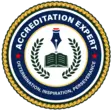Step-by-Step Guide to Obtaining State Approval
Understanding the Regulatory Framework
The Kansas Board of Regents (KBOR) plays a crucial role in overseeing the approval of private and out-of-state postsecondary institutions operating within Kansas. Their approval is necessary to ensure institutions meet quality standards and protect student interests. The KBOR conducts administrative reviews, site visits, and evaluations to ensure that institutions meet educational standards, faculty qualifications, curriculum quality, and financial stability.
Steps for New Institution Authorization
- Preliminary Steps
- Review State Requirements:
- Familiarize yourself with the regulatory requirements set by the Kansas Board of Regents.
- Ensure your institution meets the essential eligibility criteria for authorization.
- Initial Consultation:
- Complete an initial inquiry questionnaire by contacting the Kansas Board of Regents office of Private Postsecondary and Out-of-State Education.
- Application Process
- Application Forms:
- Obtain the necessary application forms from the Kansas Board of Regents website.
- Prepare all required documentation as outlined in the application guidelines.
- Required Documentation:
- Institutional Plan: Include a detailed plan outlining the institution’s mission, goals, governance, and financial projections.
- Curriculum Details: Provide comprehensive details, including course descriptions, credit hours, and program objectives.
- Faculty Qualifications: Submit the qualifications and resumes of key faculty members.
- Facilities Description: Describe the physical facilities, including classrooms, laboratories, and administrative offices.
- Financial Stability Evidence: Provide evidence of financial stability, such as audited financial statements.
- Submission:
- Submit the completed application form and all required documentation to the Kansas Board of Regents.
- Pay the application fee as specified in the application instructions.













